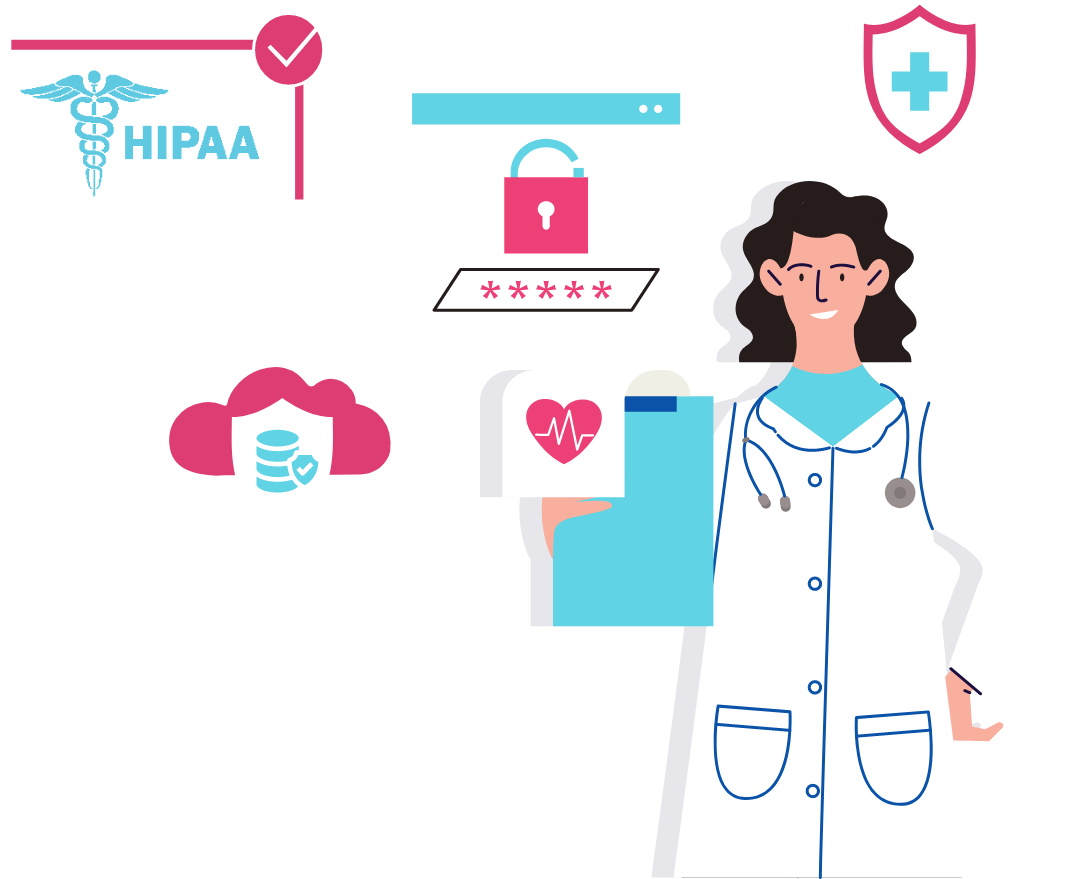


The Health Insurance Portability and Accountability Act (HIPAA)

The bedrock for both regulatory compliance and healthcare cybersecurity

A federal law that regulates and safeguards protected health information (PHI)

Set out to protect all personal information about a person’s health and how this information is stored, protected, and shared

Annual self-audit


The Health Insurance Portability and Accountability Act (HIPAA)

The bedrock for both regulatory compliance and healthcare cybersecurity

A federal law that regulates and safeguards protected health information (PHI)

Set out to protect all personal information about a person’s health and how this information is stored, protected, and shared

Annual self-audit
The Health Insurance Portability and Accountability Act (HIPAA)
The bedrock for both regulatory compliance and healthcare cybersecurity
A federal law that regulates and safeguards protected health information (PHI)
Set out to protect all personal information about a person’s health and how this information is stored, protected, and shared
Annual self-audit









To ensure that you meet all the HIPAA requirements to become compliant, it’s essential that your business utilizes a combination of internal processes, technology and compliance support.
There are a few core principles to keep in mind, starting the journey to HIPAA compliance.

Develop and implement all necessary company-wide security policies
HIPAA training – train and equip employees to recognize and prevent any threats or HIPAA violations

Risk management – be sure to have processes in place to investigate, analyze and mitigate risks so breaches don’t arise
Annual assessments and monitoring – sustainable compliance and continuous monitoring helps your organization take a proactive approach instead of damage control


Manual, complex, highly administrative, and time-consuming process

Disrupts employees’ key responsibilities and delays company growth

Lack of internal expert-knowledge

High costs and resources involved, such as consultant costs

Can’t afford risk of non-compliance, as violations are imminent

Manual, complex, highly administrative, and time-consuming process

Disrupts employees’ key responsibilities and delays company growth

Lack of internal expert-knowledge

High costs and resources involved, such as consultant costs

Can’t afford risk of non-compliance, as violations are imminent



